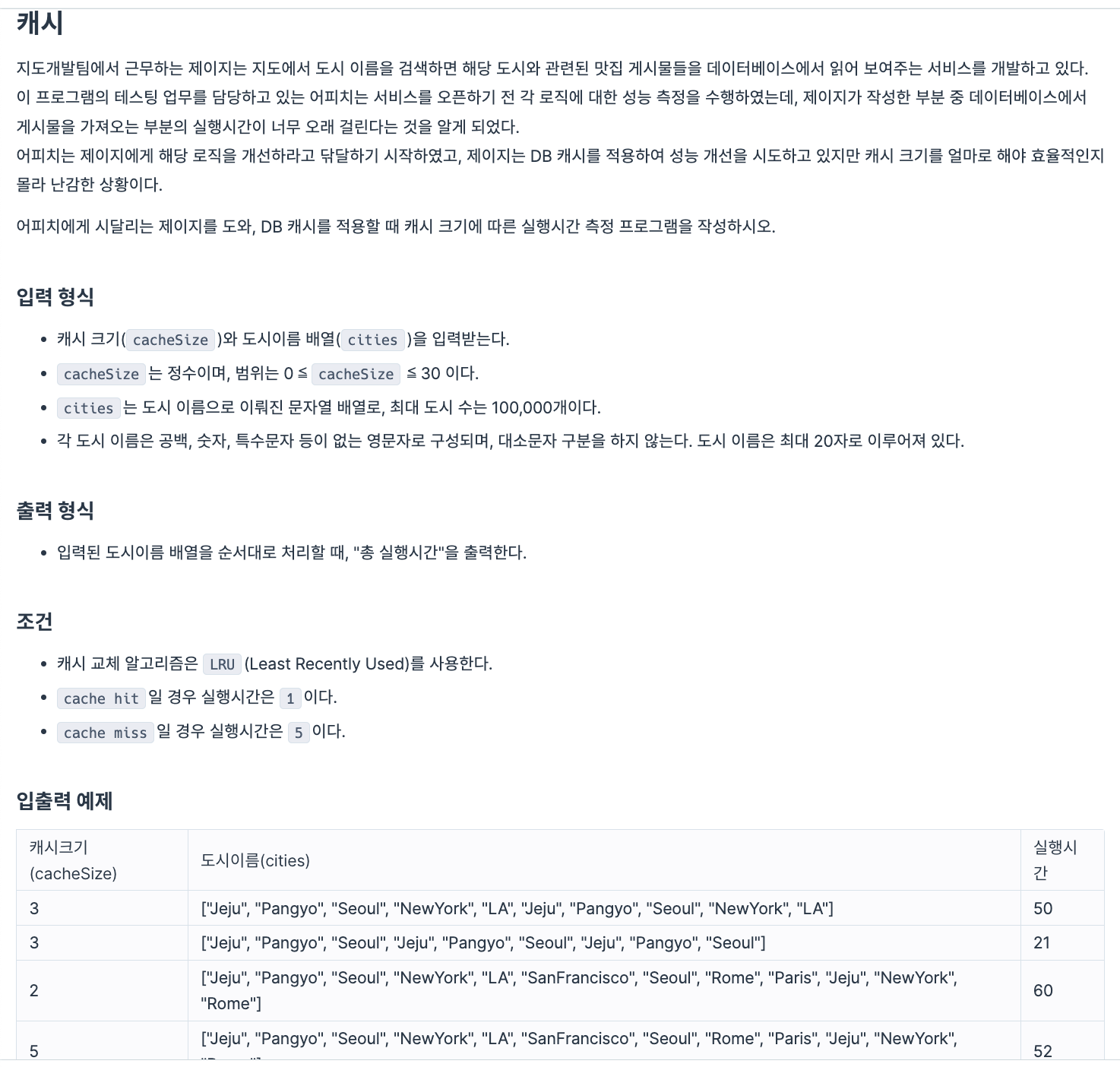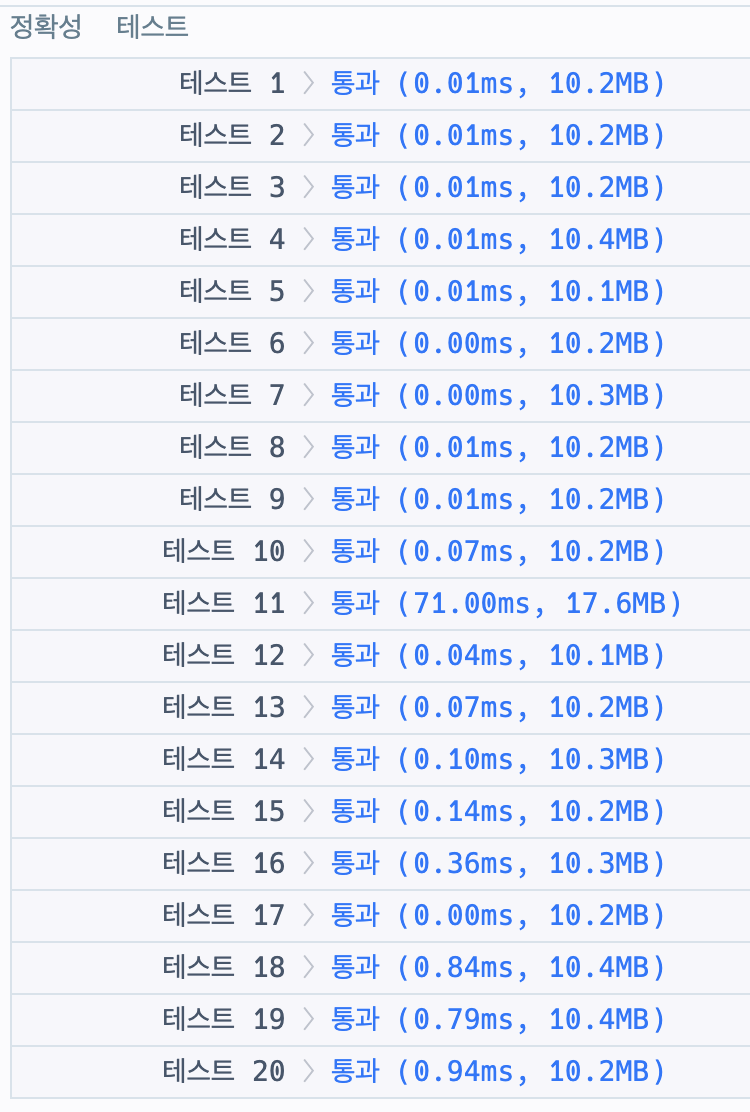https://school.programmers.co.kr/learn/courses/30/lessons/17680
프로그래머스
코드 중심의 개발자 채용. 스택 기반의 포지션 매칭. 프로그래머스의 개발자 맞춤형 프로필을 등록하고, 나와 기술 궁합이 잘 맞는 기업들을 매칭 받으세요.
programmers.co.kr

<내 코드 - list>
def solution(cacheSize, cities):
if cacheSize == 0: return len(cities) * 5
cache = []
time = 0
for city in cities:
city = city.lower()
if city in cache:
cache.remove(city)
cache.append(city)
time += 1
else:
time += 5
if len(cache) >= cacheSize and cache:
cache.pop(0)
cache.append(city)
return time
-> 캐싱에서의 LRU알고리즘에 대한 지식이 필요한 문제였다. Least Recently Used의 줄임말로 왼->오 로 갈수록 최신의 데이터로 판단하여 구현한다.
만약 캐시안에 데이터가 존재한다면 최신의 데이터로 간주해야 하므로, 리스트에서 빼고 다시 넣어주는 과정을 해준다.
여기서는 list로 구현했지만 dq자료형으로 하면 시간복잡도를 줄일 수 있을것같아서 변경해봤다.
<내 코드 - deque>
def solution(cacheSize, cities):
if cacheSize == 0: return len(cities) * 5
cache = []
time = 0
for city in cities:
city = city.lower()
if city in cache:
cache.remove(city)
cache.append(city)
time += 1
else:
time += 5
if len(cache) >= cacheSize and cache:
cache.pop(0)
cache.append(city)
return time


예상대로 미약하게나마 실행시간이 줄은것을 볼 수 있다.
그리고 하나더 deque를 사용할 때 팁이라면 팁인 maxlen이 있다.
cache = collections.deque(maxlen=cacheSize)
-> deque를 사용할 때 maxlen이라는 인자를 통해 최대캐시크기를 조정할 수 있다.
'Algorithm > Programmers' 카테고리의 다른 글
| [Programmers / Level2] 모음 사전 (2) | 2024.02.29 |
|---|---|
| [Programmers / Level3] 야근지수 (2) | 2024.02.28 |
| [Programmers / Level2] 의상 (0) | 2024.01.29 |
| [Programmers / Level2] 행렬의 곱셈 (1) | 2024.01.28 |
| [Programmers / Level2] 할인 행사 (2) | 2024.01.27 |



